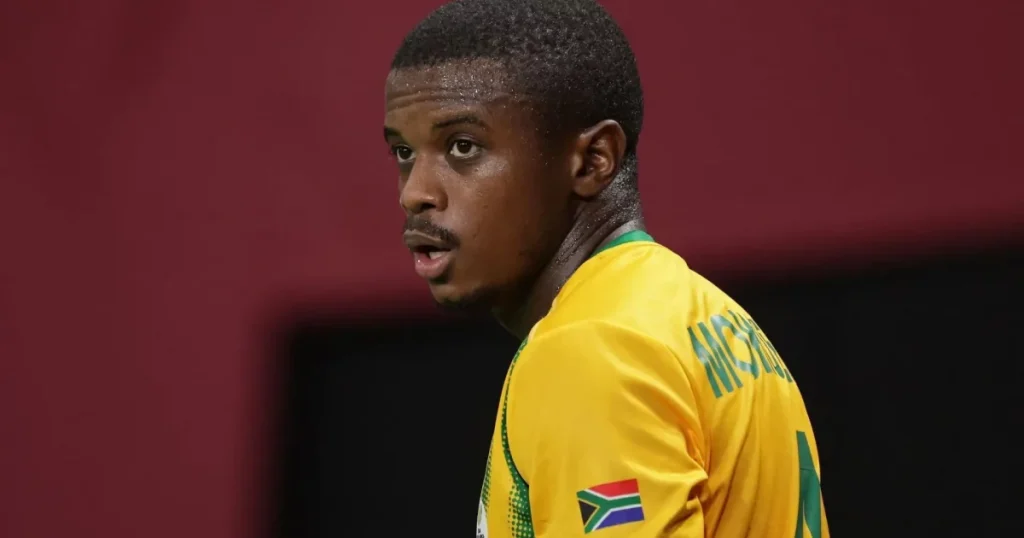The Lesotho Football Association (LFA) finds itself in a complex situation regarding South Africa’s potential use of an ineligible player, Teboho Mokoena, during their 2026 World Cup qualifier. While the LFA acknowledges that their protest was not filed within the stipulated timeframe outlined in FIFA regulations, they maintain their stance that FIFA should uphold the principles of fair play and interpret the rules accordingly. This raises critical questions about the responsibility of FIFA to enforce its own regulations proactively, rather than relying on protests from member associations. The LFA’s secretary-general, Mokhosi Mohapi, expressed this sentiment, emphasizing the importance of FIFA’s decision in setting a precedent for future situations.
The crux of the matter revolves around Mokoena’s accumulation of two yellow cards in prior World Cup qualifying matches, rendering him ineligible to play against Lesotho. Despite this, he participated in the match, which South Africa won 2-0. The potential consequence for South Africa is a three-point deduction, which could significantly impact the standings of Group C and open up the race for qualification. While Lesotho stands to gain from a successful protest, Mohapi insists that their primary concern is the fair application of FIFA regulations, not necessarily the acquisition of the three points.
Mohapi argues that FIFA should have identified Mokoena’s ineligibility through their own internal monitoring systems, rather than waiting for a formal protest. He points to Article 8.3 of the FIFA regulations, which seemingly supports his argument for automatic suspension. This highlights a potential gap in FIFA’s enforcement mechanisms, raising questions about the effectiveness of relying solely on member associations to police adherence to the rules. This situation underscores the need for a more proactive approach from FIFA in ensuring the integrity of the competition.
The potential involvement of the Nigeria Football Federation in supporting Lesotho’s protest adds another layer of complexity to the situation. Nigeria, currently trailing South Africa in the group standings, would undoubtedly benefit from a South African points deduction. However, Mohapi dismisses any suggestion that Lesotho’s actions are motivated by a desire to aid Nigeria’s qualification campaign. He emphasizes that the LFA’s primary concern is upholding the rules of the game, irrespective of the implications for other teams. This declaration aims to distance Lesotho from any perceived strategic alliances and reinforce their commitment to fair play.
The LFA’s position is a delicate balancing act. While acknowledging their procedural misstep in filing the protest, they simultaneously call on FIFA to take responsibility for enforcing its own regulations. This presents FIFA with a dilemma: strictly adhering to the rules regarding protest deadlines could be seen as prioritizing procedure over fair play, while disregarding the deadline could set a precedent that undermines the importance of timely protests. This scenario underscores the inherent tension between adhering to established procedures and ensuring a just outcome.
The Mokoena eligibility issue highlights broader concerns about the effectiveness and transparency of FIFA’s regulatory framework. The LFA’s call for proactive enforcement by FIFA suggests a need for improved internal monitoring mechanisms to prevent ineligible players from participating in matches. This incident could serve as a catalyst for FIFA to review and strengthen its processes, ensuring that the principles of fair play are consistently upheld. The outcome of this situation will undoubtedly have implications for future cases and shape the way FIFA manages player eligibility and the protest process going forward.














